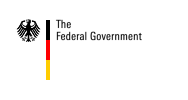The Russian Federation is a centralised presidential republic. It is divided into 88 "federal subjects" or jurisdictions which are themselves grouped into seven federal districts. There are 21 republics, one autonomous oblast, nine autonomous regions, seven territories, 48 oblasts and two cities (St. Petersburg and Moscow) having federal status.
Although the republics are represented by Russia in their foreign relations, they have their own constitutions and their own legal systems.
The official language is Russian. The capital is Moscow. Russia is approx. 17,075,000 sq. km in area and has a population of 143 million. The population is mainly Russian Orthodox, but Islam, Judaism and Buddhism are also represented.
Russia is a member of the CIS (since 1991), the UN (since 1945), the OSCE (since 1991), the Council of Europe (since 1992), the IMF and other organisations.
G8
The Russian Federation has been a member of G8 since 1998. The first summit under Russian presidency was held in St. Petersburg in 2006.
>> St. Petersburg Chair's summary
Top
Political system
The Head of State is the President, the office being occupied by Vladimir Putin since 2000. He has many powers, and determines the general lines of domestic and foreign policy.
The Russian Parliament consists of two chambers, the Duma and the Federation Council.
The Federation Council represents the federal subjects. Since 2002 it has been made up of representatives of governors and of regional parliaments. In order to provide a forum for discussion with governors, the President has set up the State Council, which may make recommendations to the executive but has no constitutional powers of its own.
The people are represented by the (State) Duma, which is directly elected for a term of four years. Half of its members are elected on party lists, the other half being elected by majority vote on a constituency basis. The Duma must confirm the appointment of the Head of Government by the President, it may dismiss the government by a vote of no confidence, and it passes legislation which must also be agreed by the Federation Council and signed by the President.
Top
Economy
President Vladimir Putin is aiming to double GDP in ten years. Russia is seeking membership of the WTO. In 2004 the Russian Federation signed an Agreement on Partnership and Cooperation with the European Union.
Facts:
- GDP grew by 6.4% in 2005, a little less than the previous year (7.1%)
- Unemployment in 2005 was 7.7% (2004: 8.2%)
- Budget surplus as percentage of GDP in 2004: 4.1%
- Inflation rate in 2005: 10.9%
Top
Foreign trade
In 2004 imports were 75.6 bn USD, exports 181.5 bn USD. Germany is Russia's most important trading partner, in both imports and exports. In 2005 trade between the two countries was worth 38.90 bn EUR. Russia is the second biggest exporter of crude oil and the biggest exporter of natural gas in the world.
